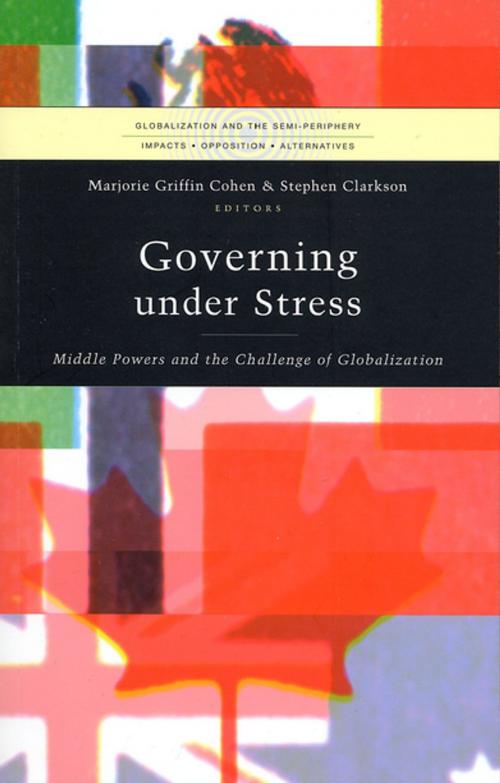Governing under Stress
Middle Powers and the Challenge of Globalization
Nonfiction, Social & Cultural Studies, Social Science, Human Geography, Political Science, Politics, Economic Policy, Science & Nature, Science| Author: | ISBN: | 9781848136953 | |
| Publisher: | Zed Books | Publication: | July 4, 2013 |
| Imprint: | Zed Books | Language: | English |
| Author: | |
| ISBN: | 9781848136953 |
| Publisher: | Zed Books |
| Publication: | July 4, 2013 |
| Imprint: | Zed Books |
| Language: | English |
This volume is the first work to emerge from a major international comparative research project exploring the political economy of globalization. This inter-disciplinary team of scholars is focusing on the semi-periphery of world power. Whether defined in social, cultural, economic or simply spatial terms, 'semi-peripheral' countries share two qualities: they are conscious of their subordination to the hegemonic powers at the centre of the global system - the United States and the European Union; they are also strong enough to have some ability to resist their domination. The structural position of these middle powers in global capitalism is unlike those countries at the centre that do not experience domination, and different from those Third World countries on the periphery that have no means to achieve more cultural and political autonomy, more distinctive and diversified development, or greater social equity and better income redistribution. Four countries in North America, Central America, Europe and the Antipodes - namely Canada, Mexico, Norway and Australia - have been selected in order to explore the complexities of globalization from the perspective of the semi-periphery. Opening chapters examine the international institutions, including the North America Free Trade Agreement, the World Trade Organization and the European Union, which now amount to a quasi-constitutional conditioning framework for middle powers under globalization. In the second part, contributors detail the pressures with which these countries have to cope and consider their ability to pursue policies appropriate to the needs and democratically defined goals of each. And in the concluding part, after discussing the new economic, political and social issues of 'governing under stress', they appraise the possibilities for middle powers to chart distinctive national courses in the face of globalization's constraining challenge.
This volume is the first work to emerge from a major international comparative research project exploring the political economy of globalization. This inter-disciplinary team of scholars is focusing on the semi-periphery of world power. Whether defined in social, cultural, economic or simply spatial terms, 'semi-peripheral' countries share two qualities: they are conscious of their subordination to the hegemonic powers at the centre of the global system - the United States and the European Union; they are also strong enough to have some ability to resist their domination. The structural position of these middle powers in global capitalism is unlike those countries at the centre that do not experience domination, and different from those Third World countries on the periphery that have no means to achieve more cultural and political autonomy, more distinctive and diversified development, or greater social equity and better income redistribution. Four countries in North America, Central America, Europe and the Antipodes - namely Canada, Mexico, Norway and Australia - have been selected in order to explore the complexities of globalization from the perspective of the semi-periphery. Opening chapters examine the international institutions, including the North America Free Trade Agreement, the World Trade Organization and the European Union, which now amount to a quasi-constitutional conditioning framework for middle powers under globalization. In the second part, contributors detail the pressures with which these countries have to cope and consider their ability to pursue policies appropriate to the needs and democratically defined goals of each. And in the concluding part, after discussing the new economic, political and social issues of 'governing under stress', they appraise the possibilities for middle powers to chart distinctive national courses in the face of globalization's constraining challenge.















